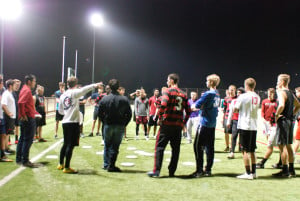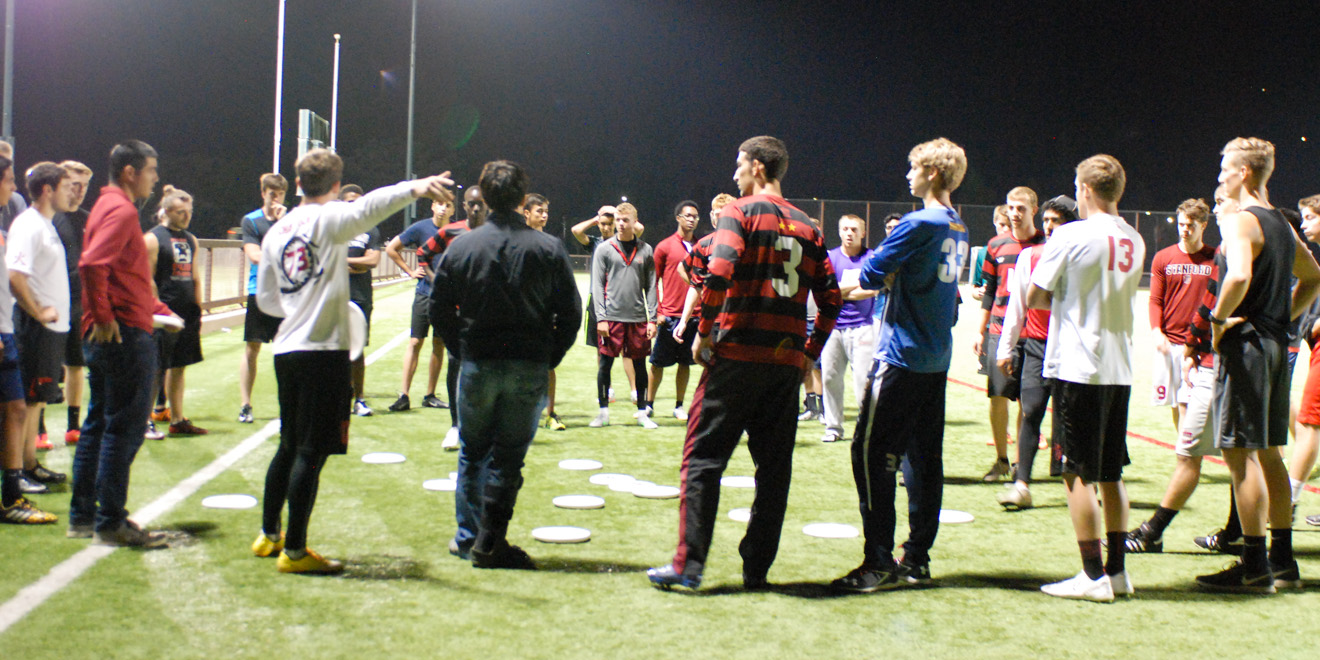
After not receiving special fees funding during the ASSU election last spring, club sports and Stanford Speakers Bureau have adopted alternative funding strategies — such as using reserves and seeking outside funding through volunteering and fundraisers — to continue uninterrupted with their plans.
Although in the election, both Stanford Speakers Bureau and club sports received majorities in favor of funding them, the two were at a disadvantage because they applied for joint special fees funding, meaning that both undergraduates and graduate students had to approve the measure and participate in the votes at a minimum rate of 15 percent. Because few graduate students participate in the elections, the two clubs did not break the 15 percent voter threshold and thus did not receive funding.
“Club sports will still function the same as it has been,” said Travis Jew, senior assistant director of Recreation Sports and Camps. “[The lack of funding] has changed plans with how we need to be fundraising and spending wisely. Also, it will change how much we travel for away games [as well as] team dues for each athlete.”
The student groups that did not receive special fees funding included club sports, Stanford Speakers Bureau, Delta Sigma Theta Sorority, the Transhumanist Association, the Inter-Fraternity Council and the Stanford Golf League. Club sports, however, already largely relied on outside funding in previous years. Special fees only made up one-third of the organization’s budget, while the rest came from dues and fundraising.
While the organization as a whole is unaffected, the participants on club sports teams have been impacted by the lack of funding. Sarah Radzihovsky ’18, a member of the women’s club soccer team, highlighted the importance of teams’ securing additional funding through fundraising.
“Our financial officer has done a great job getting us funding through other means, like volunteering at different events,” Radzihovsky said. “Our dues have definitely gone up, and I presume this is because our source of funding is less stable and reliable, so we want to play it safe.”
Stanford Speakers Bureau aims to continue in a similar vein without altering operations for this year in any way. Last year’s president, Jono Bentley ’15, expects to use funds from reserves and other sources to continue their programming.
“We are using a combination of reserves as well as grants from both the Graduate Student Council (GSC) and the Undergraduate Senate,” Bentley said. “During the vote last year, the majority, including over 80 percent of undergraduates and over 50 percent of graduates, voted in favor of funding Speakers Bureau. What that resulted in was the GSC and undergraduate senate wanting to represent [the] wants of their constituents, so we are working with them to secure funding.”
“Though our operations have not changed, we are going to have to think about how we will proceed next year in how we ask the Stanford community for funding,” he added. “We were disappointed that last year, despite the fact that we had a majority of total votes in favor of funding, we still didn’t receive it. That’s a constitutional problem that we will have to think a lot about as we move forward.”
As for club sports, even though it has graduate students participate, the group plans to apply for only undergraduate special fees funding in the next election, since over 80 percent of undergraduates voted for club sports to be funded in last year’s election.
Both Bentley and Jew stress the importance of their groups as being vital to campus life.
“Participating in club sports gives students a competitive environment [in which] to compete and represent our university,” Jew said. “We connect with other universities and represent Stanford on a daily basis. Club sports helps students create friendships outside of the classrooms and establish a community that will last for their time as a student and beyond.”
Stanford Speakers Bureau has brought speakers like Maya Angelou, Jesse Jackson, Gloria Steinem and Bill Gates to speak at Stanford.
“The Speakers Bureau is a group that is absolutely at the core of enriching campus life by giving students the unique opportunity to hear from and interact with speakers from all over the world,” Bentley said. “We have a lot of speakers on campus, but they don’t come for free.”
“Speakers Bureau is critical in getting speakers in many disciplines ranging from academia to the arts to politics,” he added. “Beyond that, it has always been the largest sponsor of speakers at Stanford University, so there would be a huge void if the organization did not exist at all.”
Contact Pallavi Krishnarao at pallavik ‘at’ stanford.edu.
